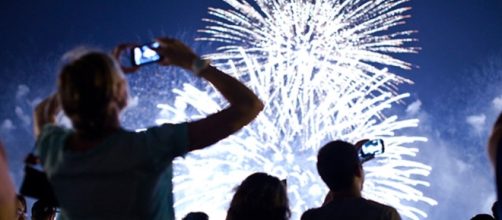New Jerseyans can enjoy lighting certain types of fireworks this Fourth Of July, now that Governor Chris Christie has signed a bill legalizing hand-held and ground-based sparking devices for consumer use.
The non-aerial and non-explosive products now permitted in New Jersey include cones, fountains, sparklers, party poppers, snaps, snakes, glow worms and smoke devices. However, firecrackers, sky rockets and aerial devices remain illegal.
Although certain products can now be legally purchased and used, consumers still face the risk of serious injury from any type of firework product.
According to the United States Consumer Product Safety Commission, approximately 250 people visit the emergency room each day around the Fourth of July holiday for injuries caused by fireworks. Over 69 percent of firework-related injuries were burns, with 33 percent of burns affecting hands and fingers, and 28 percent scalding heads, faces and ears.
It’s important that consumers in both New Jersey and across the United States use fireworks safely, should they choose to purchase them this Fourth of July holiday. Here are five ways consumers can safely Light Up their celebrations, based on the safety recommendations of the American Pyrotechnics Association (APA).
1. Provide Adult Supervision
According to the APA, a responsible adult(s) should supervise and handle all fireworks.
Although handheld products like sparklers are popular among children, they should never be given fireworks to handle themselves. Additionally, New Jersey law states that consumers must be 16 years of age or older to purchase firework products.
2. Stay Sober for the Show
It’s not safe to handle or use fireworks while intoxicated, the APA warns, meaning alcohol should not be consumed immediately before or while using fireworks. All adults should ensure that anyone handling fireworks abstains from alcohol until after the show ends.
3. Protect Your Eyes
The United States Consumer Product Safety Commission reports that 9 percent of fireworks injuries around the Fourth of July are eye injuries. To prevent accidents and injuries, the APA recommends wearing safety glasses while using fireworks.
4. If a Firework Doesn’t Work, Trash It
“Dud” fireworks aren’t safe to attempt to light a second time, the APA says. If a firework doesn’t work the first time, wait 20 minutes before soaking it in a bucket of water, and then safely discard it.
5. Keep Water and a Hose Available
Even with the highest measures of safety, accidents can still happen. The APA stresses the importance of keeping a bucket of water and a connected hose nearby. Having these can be both helpful and even vital in case a firework malfunctions and/or causes a fire.
To view the APA’s full list of safety recommendations for using fireworks this Fourth of July, visit their website before your celebration.


